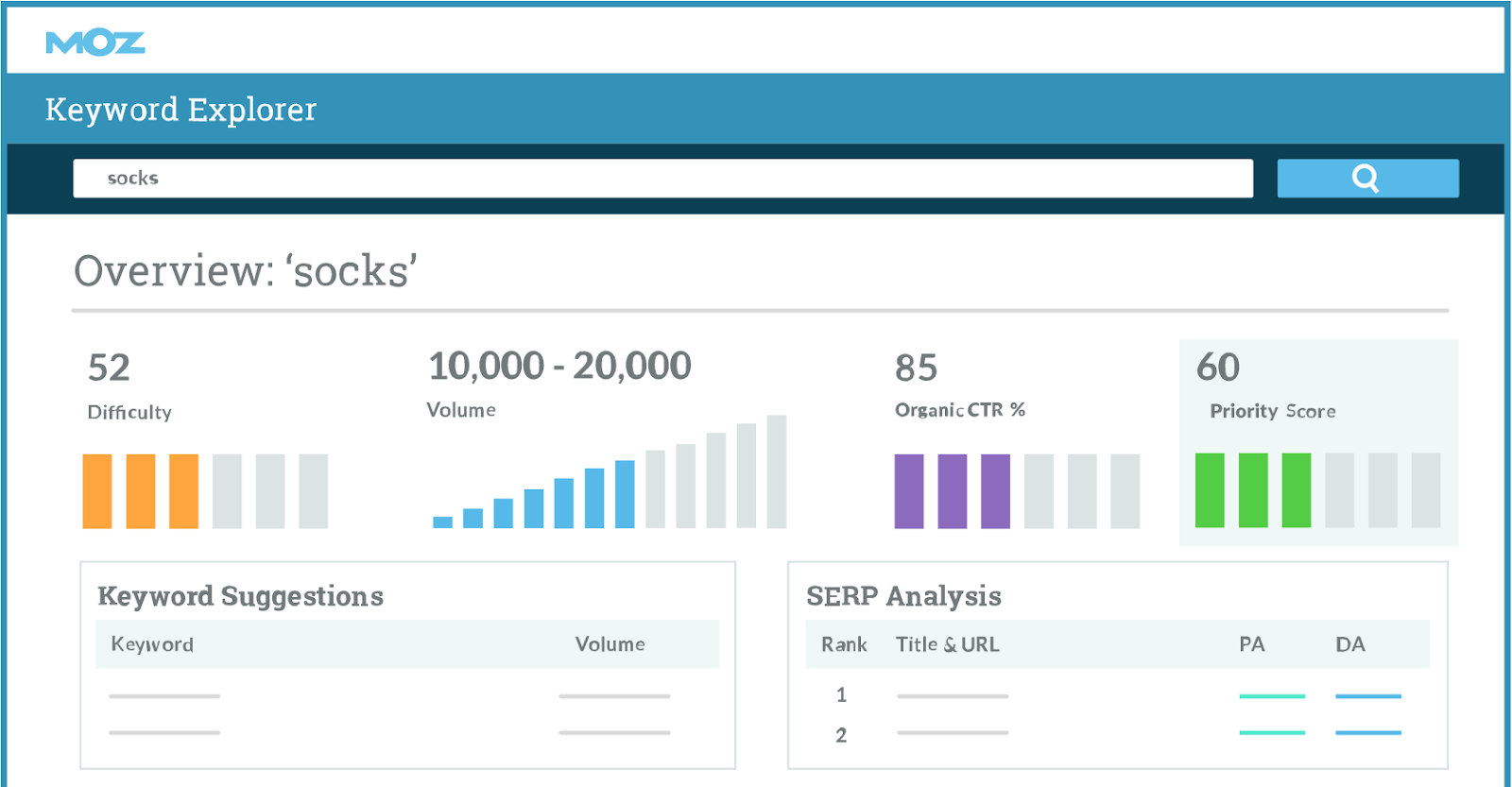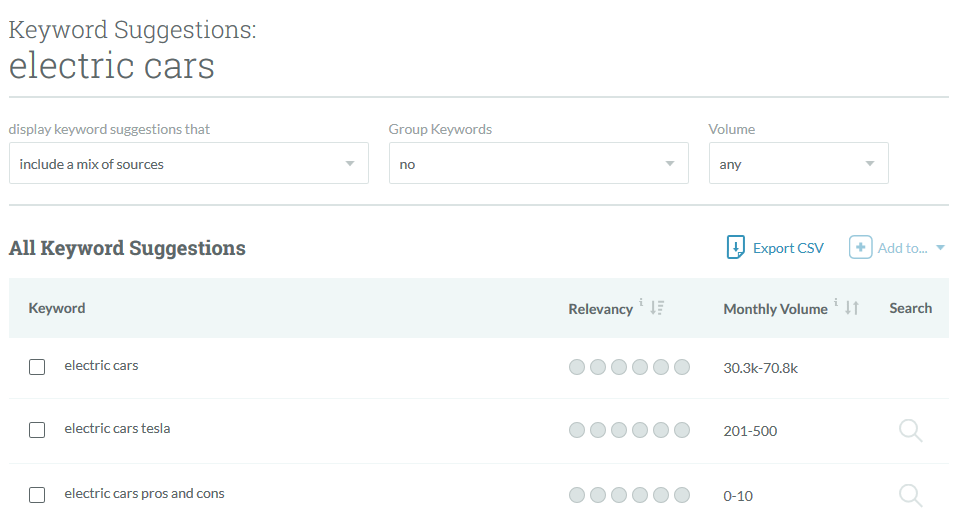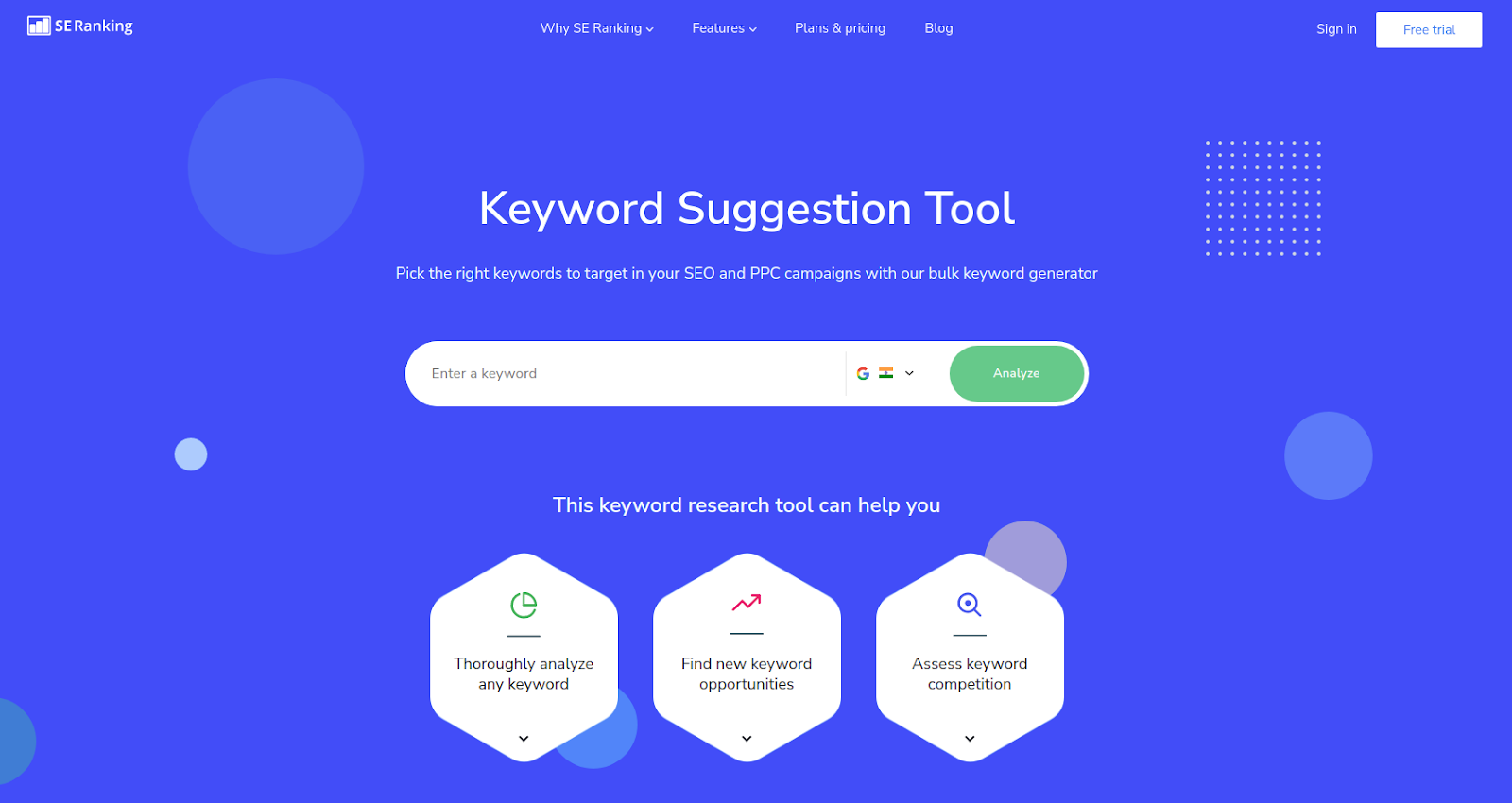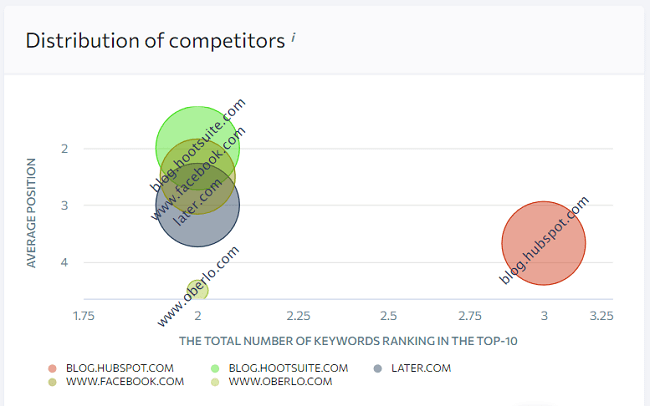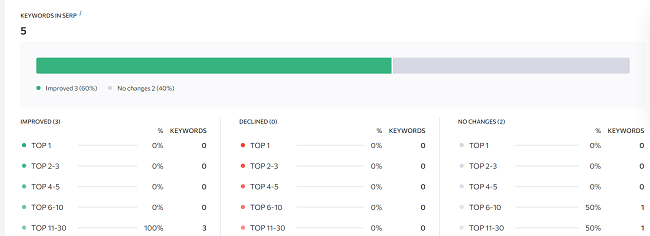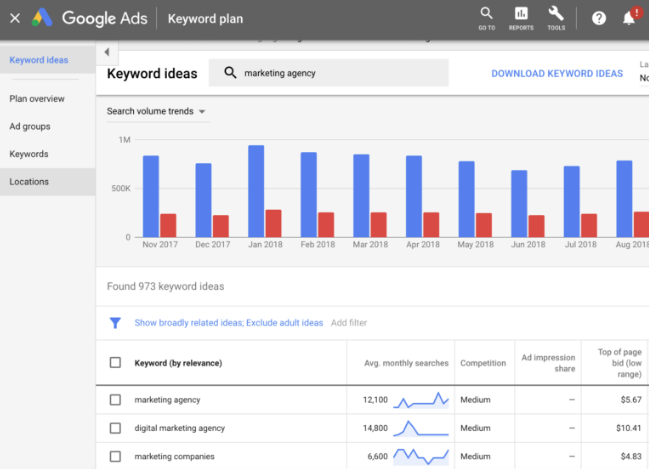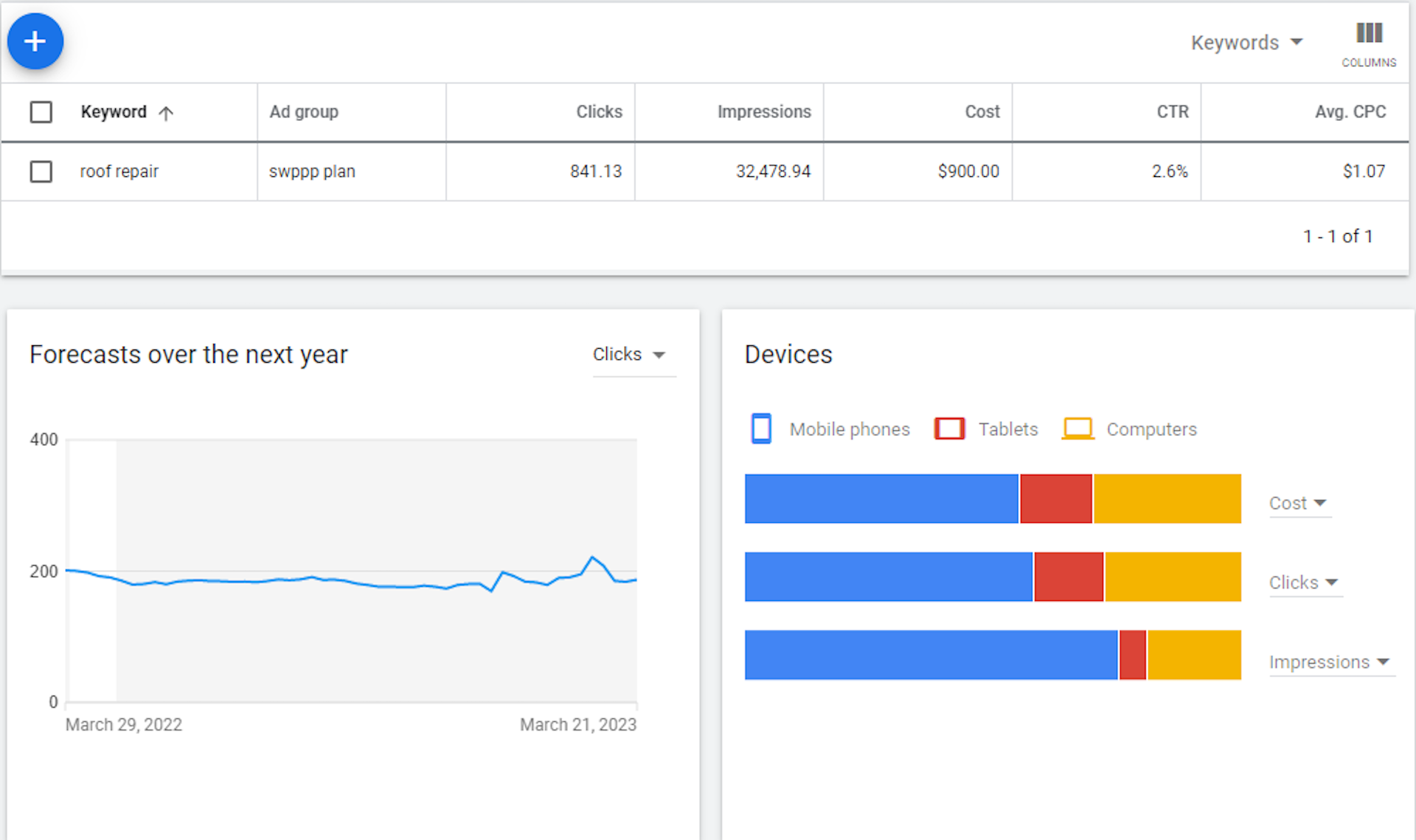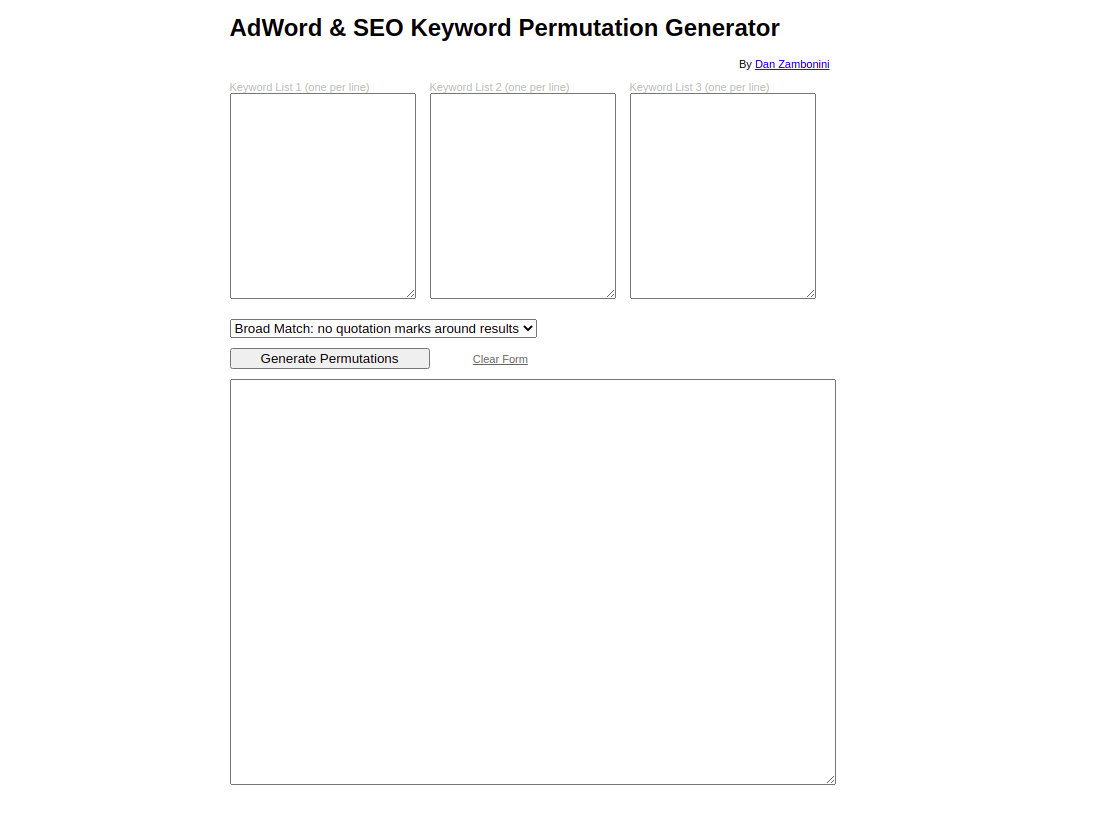The word ‘free’ signifies joy and elation. And, over every other thing, free is fantastic, especially when the ‘free’ offers a user something extra in terms of ranking, money, traffic, sales, or even reputation.
And, as far as search engine optimization is concerned, you need keyword research tools. You think about a bubblegum strategy and perform the ol’ Google search. Once the search results are out, all you do is scratch your head.
From all the PPC and SEO keyword tools you observe in the search results, what strikes your mind?
Why do you need a free tool anyway?
Is it to extract social media keywords?
Would a tool suffice if it suggests?
Are there tools with SERP and competitive analysis?
Are prepositions necessary anyway?
Is it possible to get long-tail keywords?
Questions… followed by one another would just enable you to shut down the system and hit the bed. Don’t get in a fluster! Instead, research a bit. Even though numerous free SEO tools can satirize your conscience, the downside is that most are junk.
A few keyword search attempts and BOOM – Buy Premium For Full Access! If that’s not that, there’s pricing you must concur with. Free (but not really), free forever, paid (but a ripoff), paid but wait. This is when you must think out loud.
Image source: Istock
What kind of keyword research are you looking for? There’s no scarcity when it comes to purpose-driven tools for keyword analysis. There are hundreds out in the digital space, and they tend to run the gamut from highly-advanced tools to beginner-centric ones.
In addition, such tools also range from entirely basic and impractical to the utmost valuable ones. The finest free tools can streamline and simplify your operations when done the right way. Moreover, they allow you to look for ideal keywords to target and provide you with the precise data you were looking for all this while.
However, they mustn’t license you to clear your bank account and sell the firstborn child to access the complete data. Before getting anywhere, it’s crucial to determine the factors that make a tool one for the masses.
How to assess the best keyword research tool?
Every best application or tool is written by humans who have drained much of their years utilizing, testing, and writing them. Besides, developers spend days researching and testing tools, running every application as it is intended to be used.
It does not end here. These applications undergo stringent testing and evaluation before going live.
Wondering how the features work? They are pretty seamless. You perform a search for a specific anchor text, and the app notifies you.
Nevertheless, there are multiple ways to maneuver the keyword data. Regardless of what you search for, certain factors can determine the authenticity of a keyword analysis tool. Some of the considerations are mentioned in the rundown.
1. Data included
A suitable keyword analysis application offers the data required to rank for specific keywords. All such tools comprise keyword difficulty indicators or figures, Search engine ranking performance, and traffic.
2. Data sources
What strikes you when data sources come into the picture? It’s not as simple as said. While your keyword is free of biases, knowing the data source in the keyword analysis applications is essential.
3. Optimization guidance
SEO guidebooks and briefs are pretty clear. Having said that, you don’t have to be a decade-old expert in the SEO space to utilize keyword analysis tools. Some suitable and user-friendly keyword research applications offer seamless suggestions to optimize your selected keywords.
Tools like Semrush, Moz, and Ahrefs can initiate your website’s search engine optimization analysis, which pays heed to your website’s technicalities, speed, content clusters, and DA.
4. Free upgrades and allowances
Several tools encompass results bounded by a specific number of attempts and refer to it as a ‘free plan.’ On the contrary, they often place time limits on free plans, efficiently designing them in such a way that it looks like a trial app.
Factors influencing tool selection
1. Brainstorm Your Keywords
Have you ever wondered about jotting the keywords with a pen and paper? Living in an information age doesn’t imply technological dependence.
Instead, think about short-head keywords that resemble the core of the words you wish to write. Such keywords resemble those used for link-building purposes.
Image source: Unsplash
It could speak about:
- Bluetooth headphones
- Whey protein
- Beer glasses
- Home Decor
Once you have a list of primary keyword targets, it would be wise to brainstorm and mind map all the genres and question phrases concerning that. Don’t be a bot. Think of how your not-so-smart buddy will search for Google trends. For instance, Bluetooth headphones will break down into:
- Best Bluetooth headphones online
- Comparison of Bluetooth headphones
- Bluetooth headphones with extended battery usage
The skill is not to censor your thoughts. Try thinking of as many suggestions and variations as you can. Once you have the list, try running them through your selected keyword analysis tool. Remember, with excellent keyword tools comes great responsibility! We’re kiddin’!
The robustness of your research lies in a comprehensive understanding of your niche and how users from that sector are looking up for your solutions, products, or content. A simple keyword research activity offers certain search data to help you find answers to queries like:
- What do users search for?
- Are there thousands looking for it?
- In what form of arrangement do the users need the data?
Ask questions before any keyword research
Before finding a way to grow a brand through SEO, a user must acknowledge who they are, their clients, and their objectives. This is often the crucial point where one can cut corners.
Suppose you initiated your SEO journey the previous week and wish to rank the website; what would be your primary focus? In that case, the focal point will be finding the right keywords to rank higher and quicker.
Image source: Unsplash
Even though they are uncontrollably different, you could still land the punch – how you’d ask? Let us help you out. Study your audience and utilize the keyword data to edge past research. Such a strategy will lead to seamless campaigns and not arbitrary anchor texts.
Let’s take an example!
What if Walmart wants to discuss some vital aspects of SEO to improve its organic search results? At this point, you might wonder ‘why Walmart would need SEO to improve its SERPs.
Speaking of which, it’s always essential to understand more about whom you want to target. To perform such action, you would have queries like:
- What products, brands, essentials, etc., are buyers looking for?
- Which segment is looking for such goods?
- What day do potential buyers search for specific brands, essentials, etc.?
- Is the trend looming large because of festivities or seasonal changes?
- When it comes to brands, how are buyers searching for them?
- Are there particular words they’re searching for?
- Are they asking some questions?
- Are these buyers searching for products on their smartphones?
- Is it an adult or a teenager looking for essential products?
- If it’s an essential item, are buyers looking for health-conscious items or speed-buying through certain categories?
- What’s their location? Are these buyers locally, internationally, or nationally located?
In the end, here’s something you’d never take for granted. How can you ‘as Walmart’ offer the best content to pursue a community and satiate what they are looking for? As a result, ask a set of questions to guide your keyword research. This will assist you in crafting optimized content.
What terms are people searching for?
You might have a specific approach to expressing what you usually do. But how the target audience searches for your information, services, or products you offer matters.
Meanwhile, free SEO keyword analysis tools can only help if you understand the terms people want. To understand it further, keyword research is integral.
1. Discovering keywords
If you’re here, you likely have prepared a list of keywords you’d want your website to rank for. The list could comprise your company’s services or products the site addresses. While you’re at it, these angles are an ideal seed for the research, so begin ASAP!
The next step is to sign up for a free SEO keyword research tool. Enter the keywords and discover the average search volume and similar keywords. If you already have seed keywords jotted somewhere, enter them into the tool.
Once done, you’ll unearth standard queries, various other keywords, and specific topics of discussion that you may have missed earlier. Let’s support this statement with an example of a photographer specializing in events.
Typing ‘wedding’ and ‘photographer’ into the tool would bring to light some highly admissible terms concerning:
- Portraits
- Wedding albums
- Pre-weddings
While operating on relevant keywords, you’re bound to notice the search volumes of some apparent keywords. And, when you do, the sky’s the limit.
Since low and high-competition keywords benefit your online brand, educating yourself on search volumes can help prioritize anchor texts and pick those that will offer your site the most significant strategic supremacy.
2. It’s time to diversify!
What do we mean by diversity here, anyway? You must understand that keywords are only one criterion to rank high on SERPs. Pages do! With buoyant names, it has been seen that their homepage ranks for several keywords.
On the other hand, this is not the case with other sites. Other websites get more organic traffic to web pages except for their homepage. This is why a user must diversify multiple pages through keyword optimization.
Consider diversifying your keyword-picking strategy. Suppose you’re running an email marketing campaign and be on the positive side of SEO. Such a strategy would enable you to pick keywords that can make a difference.
Since you’re through with the factors that can determine the success rate of your content SEO, it’s time to check some of the incredible free tools for SEO keyword analysis.
BoardReader – Tried Forums Yet?
BoardReader is one of the free keyword research tools that scrubs forums for recent posts concerning your topic of choice. It doesn’t sound familiar, right? Let us be more precise.
If you tend to enter seed keywords in the search bar, it will project several threads and updated discussions from the public. Still not there yet? The window will more likely look like this once you search for something.
Steer clear or still in the deep yet? This might appear like a list of random searches, but if you type an intuitive seed keyword, you can observe what other users said before and after. With its assistance, you can craft meaningful long-tail keywords with multiple forms of intent.
It is time to get your thinking hat on. Think:
- Protein shake samples
- Cheap protein powders
- Best protein shake powders
If you still need to comprehend, consider putting in extra legwork to look for all of this. Remember, the idea is there. BoardReader is an odd keyword research tool; we know!
Despite that, it does offer you ideas based on which you can frame ideal keywords to rank your articles and blogs or even rank higher on Google, for that matter.
When is BoardReader most effective?
Forget about search engines, internet searches, and web search results. When it comes to private search engine results, such as message boards about specific subjects, BoardReader is one of the very first forums you turn to.
Moz Keyword Explorer
It would be a shame to admit that ‘Moz’ is still unknown to you. Anyway, if you’re well-versed with Moz’s keyword explorer, it offers multiple tools designated specifically for keyword research.
Since it does not comprise as many data points as other fully-equipped search engine optimization tools, such as SERP position history, it could prove advantageous. Wondering how?
Well, if you’re not a pro marketer, too few and too many can prove a bit overwhelming. In this case, one less feature creates a better user experience.
With the Moz keyword explorer feature, you can look up any keyword and check its difficulty level, monthly volume, and organic CTR. Once you’re there, scroll down and check the analysis of recurring results ranking and suggestions for similar anchor texts.
Wish you knew more? Moz also incorporates a PRIORITY score, simplifying research by providing a user with the result on whether a specific anchor text is worth pursuing. The software evaluates a report based on a keyword’s volume, density, and CTR.
This can affect your ‘My Score,’ a metric set by you, delegating how pivotal a specific anchor text is to your brand. Furthermore, this is based on your knowledge and excellence.
Remember, all pro SEO keyword research tools either have limited searches per month or a free trial. In this case, Moz keyword solutions are free for 10 queries per month per tool. Once you’ve exhausted your free queries, consider updating to a pro plan that begins at $99/month.
Stuck? Use it for some sweet data points
Where this keyword planner truly stands apart is in its representation of valuable new data points that you missed out on earlier. In Moz’s interface, you’ll have a couple of data points: Monthly Volume and Relevancy.
Once you have listed your terms in the keyword list of the search bar, Moz tends to accumulate more profound metrics that can offer better context. The tool defines such metrics as:
- Rank
- Monthly Volume
- Difficulty
- Opportunity
- My Score
Looking for data visualization? Choose SE Ranking
There’s nothing wrong with having everything. This is precisely what the developers of SE Ranking believe in. Speaking of the tool, it’s one of the website analysis tools, offering a set of optimization features. But what do we mean by data visualization here?
Well, it’s a real upgrade stitched together to form robust visual data. Even though it’s an upgraded spreadsheet-like format, you ought to like its competitor research report layout.
Begin by starting the corresponding software and obtain the entire competitor profile within seconds. Once you enter the text, you’ll witness the number of organic keywords against paid traffic.
All things considered, the report is stimulated into many snapshots for specific metrics like paid and organic traffic, top-ranking pages, spot-on competitors, ranking keywords, and best PPC campaigns.
While you’re on the lookout for peculiar keywords that are more precise, this software, with a click of a button, can provide you with a comprehensive report.
When should you refer to SE Ranking?
Even though this is a million-dollar question with several keyword planning tools in the reckoning, you can achieve several neat and precise visualizations of your summary pages.
These pages can make it seamless for you to understand the performance at a glance. For instance, the chart demonstrates the distribution of top competitors based on the total number of keywords.
We have another brief graph that shows how many of the tracked keywords have declined, improved, or stayed at the same number. Consequently, it shows you how you’re moving up front with the right metrics.
Moreover, if you wish to track rankings at a local level, SE Ranking is one of the best in the business with visual representation.
Free Trial
While eyeballing around keyword reports, it would be fair to say that this software won’t make your list. And, buying a pro plan for SE Ranking would be a steady hindrance anyway.
Consequently, a 14-day free plan can add much to your keyword mapping and research. Page auditing, tables, and detailed reports up to 10 rows can still deliver most of what you might be looking for.
Google Keyword Planner
Talk about one of the best in the business, and Google Keyword Planner is right up there. Even if you don’t purchase Google Ads, you forebear exhausting your SEO budgets and running out of limits.
The tool comprises a couple of primary features: the first one being keyword discovery and research, the other one for comprehensive research on forecasting and volume.
If you stumble upon the ‘keyword ideas’ feature, know that it resembles many tools you would have looked over at least once.
You look for a seed keyword, and the tool produces various other keyword indications, coupled with reports on weekly/monthly search volume, competition, shift over time, ad impressions, and extensive ranges.
In such a case, you can refine the list by filtering brand-specific keywords, source sites, etc. What’s more? Its FORECAST feature makes a significant amount of difference. Through such a feature, you can plan for paid adverts and budgets before everything else.
Should you head towards investing in PPC, hold up a little. Keyword Planner can also suggest your organic campaign by demonstrating how to rank organically. And, here comes the ‘music to your ears.’ Google Keyword Planner is free!
Choose Google Keyword Planner to Optimize Keywords Based on Device
Forget about conventional keyword suggestions. Google keyword planner allows you to optimize web pages for various devices. Here in a screenshot, you’ll come across an ad campaign that targets ‘roof repair’ in the Dallas region.
Not so unusual, these searches took place on smartphones or tabs and are most likely subjected to ‘near me’ search intents.
Based on the evidence, optimizing such landing pages for smartphones, curating a robust brand presence, and inserting a CTA button on local directories with apparent contact information will net conversions in abundance.
SEO Keyword Permutation Generator
Have you forged toward glory yet? It’s evident that you’re having difficulty figuring out how to establish successful keyword research. And so the AdWord and SEO keyword Permutation Generator comes into the fold.
The software is devised to provide a user with keyword variation. Still wondering how it operates? Try plugging in 2-3 lists of keywords. Once you’ve kicked off the tool, it will produce a combination of what you entered in the first place and offer you an array of permutations. Makes sense!
Reckoned as one of the straightforward software on the list, it’s also pretty potent, enabling permutation for thousands of keywords simultaneously. Some of its features are second to none:
- Instant permutation generation
- Three spaces for keyword lists
- Multiple options for displaying keyword permutations
It’s happened again! The tool is free for all.
Got Questions? Choose AnswerThePublic!
What if you had the most-asked questions echoing around? If that’s the case, choose AnswerThePublic to obtain keyword recommendations through standard queries and voice search optimization.
Since Google can acknowledge natural language, it provides a platform for searchers to phrase their queries as specific questions instead of separate words or phrases. On the contrary, what makes AnswerThePublic user-friendly?
The tool deciphers your content and answers precise questions from the get-go. Wait, there’s more to it. If you come up with question-specific content, the answers are anticipated to squeeze into Google’s featured answers or what they call ‘position 0.’
The point we’re trying to make is – AnswerThePublic can be one of the seamless ways of finding famous questions concerning your niche.
It’s a no-brainer keyword tool that affiliates primary keywords with several words, such as what, why, who, and many more. You’ll also capture multiple keyword ideas through preposition variations in the bargain.
This occurs when the seed keyword you’re searching for is merged with other keywords through a preposition and comparison, such as other keywords versus your keywords. Easy-peasy, eh?
How does AnswerThePublic answer your question?
While you’re at it, THE question begs to be answered. When do you need this tool anyway? Well, if you’re stuck with a specific search intent, make it easier with the right questions. Remember, when users hunt for answers or search online, it is likely they have several queries.
So, here’s a live example.
Suppose your brand circles around cycling. In this case, if you type ‘bicycle t-shirts into the tool, it will provide you with results of all the common search terms. However, ensure they are relevant. Based on relevant searches, create content pieces that answer all these questions.
‘Keyword-Keyword Everywhere’ with Soolve!
Do you use Google more often? Imagine using other search engines and not reading between the lines regarding keyword performances on different search engines. In this case, Soolve can come in handy. If you optimize on search engines like Yahoo, consider opting for this tool.
Got doubts over its credibility? Soolve can be operated on search engines mentioned in the rundown:
- Yahoo searches
- Bing searches
- Google web searches
- YouTube search engine
- Amazon searches
- Wikipedia search engine
At times, long-tail keywords can add a lot to your optimizing campaigns. However, finding the right tool specifically for such keywords can be taxing. With Soolve, you can generate a brief list of long-tail keywords to optimize blogs and articles.
While entering base keywords, the tool offers auto-complete recommendations from other sources, including Wiki search engines. Additionally, it’s a suitable software to experiment with multiple keywords you shortlist for your SEO practices.
When do I know that it’s time to use Soovle?
Even though the interface looked scattered and all over the place, it doesn’t take away Soolve’s intent. The tool’s objective is to scan APIs you wish to use from the ‘Engines’ link. Once you are through, consider entering your keywords into the search box.
When you enter the keyword, other selected search engines will start showing keywords throughout the page. And, if you have its addon installed on Chrome, you’ll come across CPC and search volume appended to the right of every keyword searched.
If you’re looking for simple keyword research software, it has to be Soolve’ and solved’ (pun intended)!
Final Thoughts
After you’ve tried all these keyword tools, you might wonder what’s next. We believe selecting such a tool aligns with how you wish to orchestrate your SEO campaign. These tools help in exploring how the website is performed for particular keywords.
In addition, some of the listed tools can project the average click-through rate on your listing. Users can improvise the title or search for question-specific keywords to enhance the rankings.
Image source: Istock
Without a suitable keyword, your site might never see a rise in organic traffic. Nor would you have an efficient content marketing strategy. With these SEO tools, you’ll have enough ideas to carry on, invest in profitable campaigns, and make the content marketable.

About the author: Vibhav Gaur, Business Head
Vibhav Gaur leads strategic operations and business growth at the organization. With a strong background in digital transformation and customer-focused solutions, he has helped numerous clients streamline their web presence and scale efficiently. His leadership ensures seamless execution across teams, with a commitment to delivering results and fostering innovation in every project.







